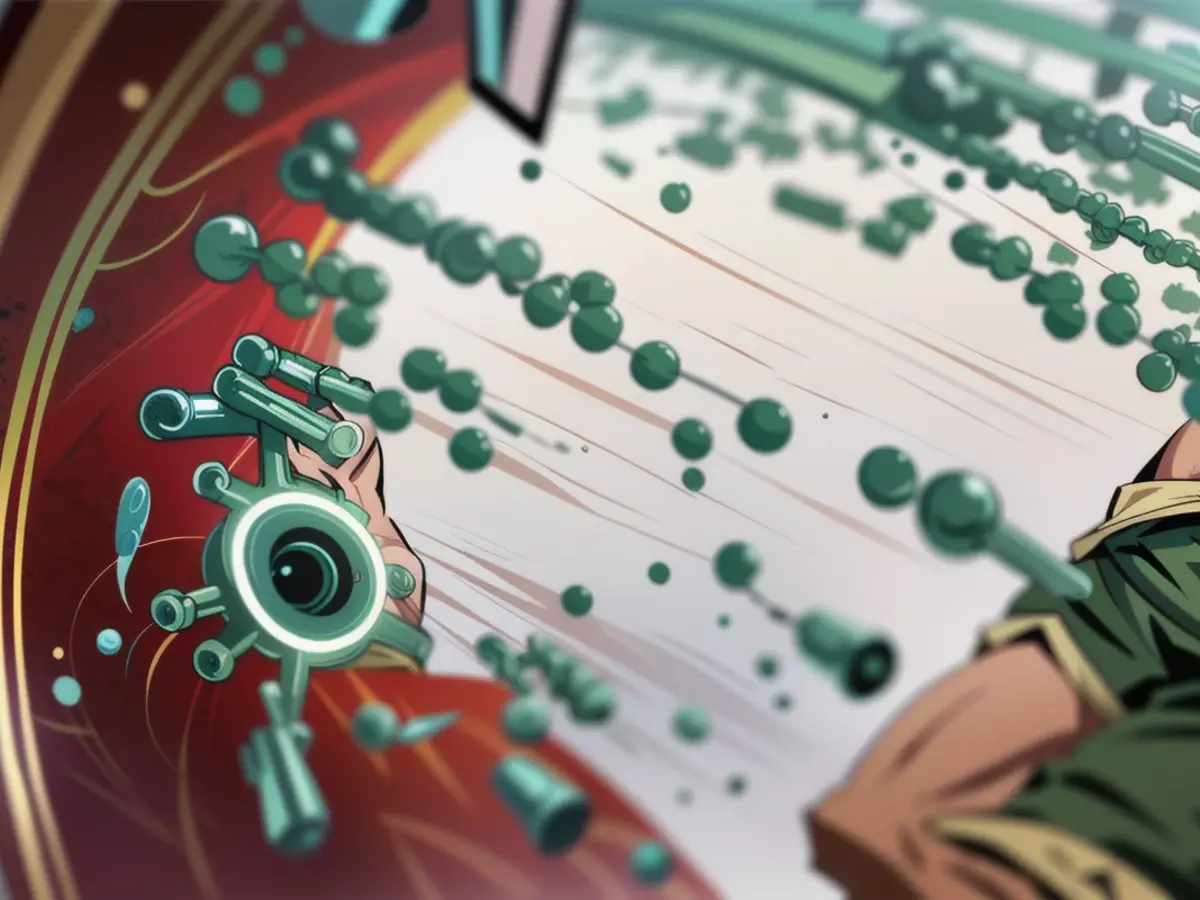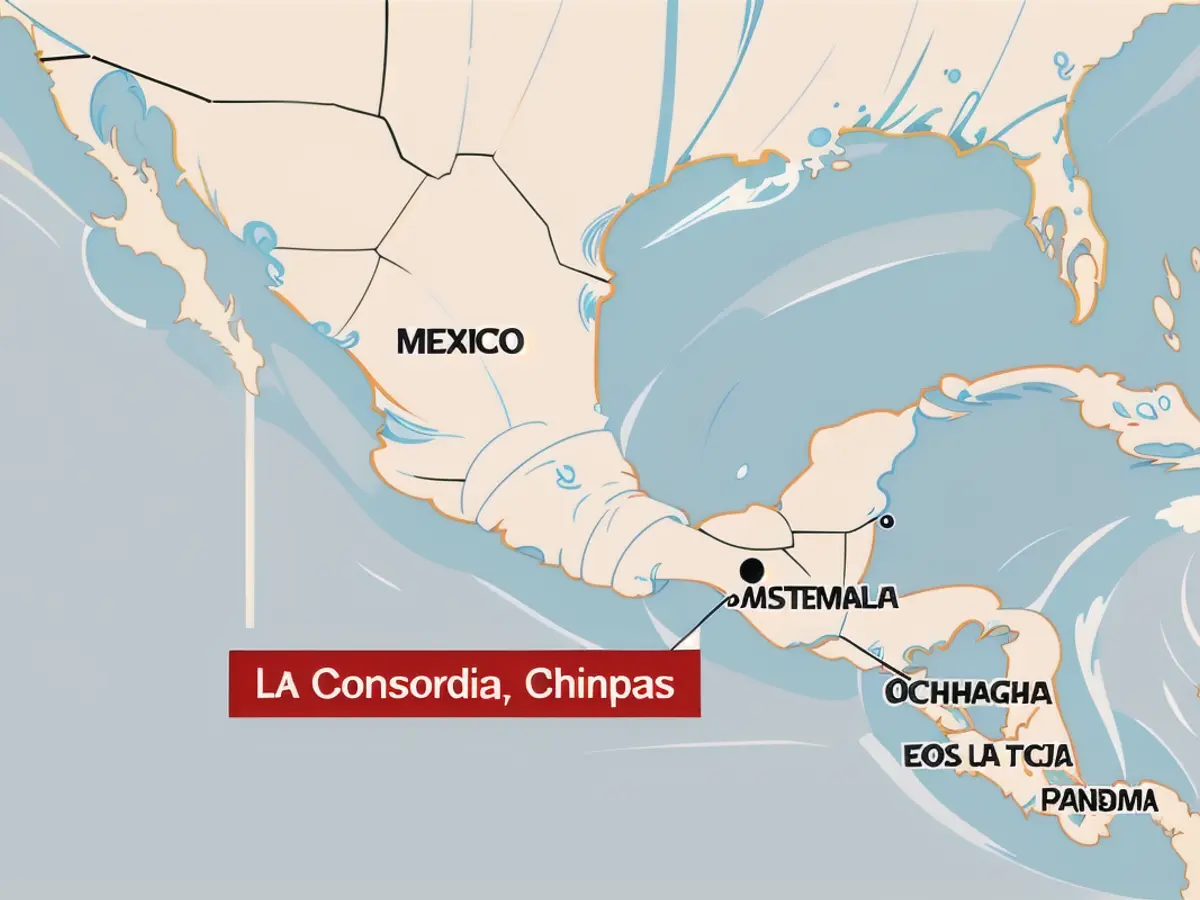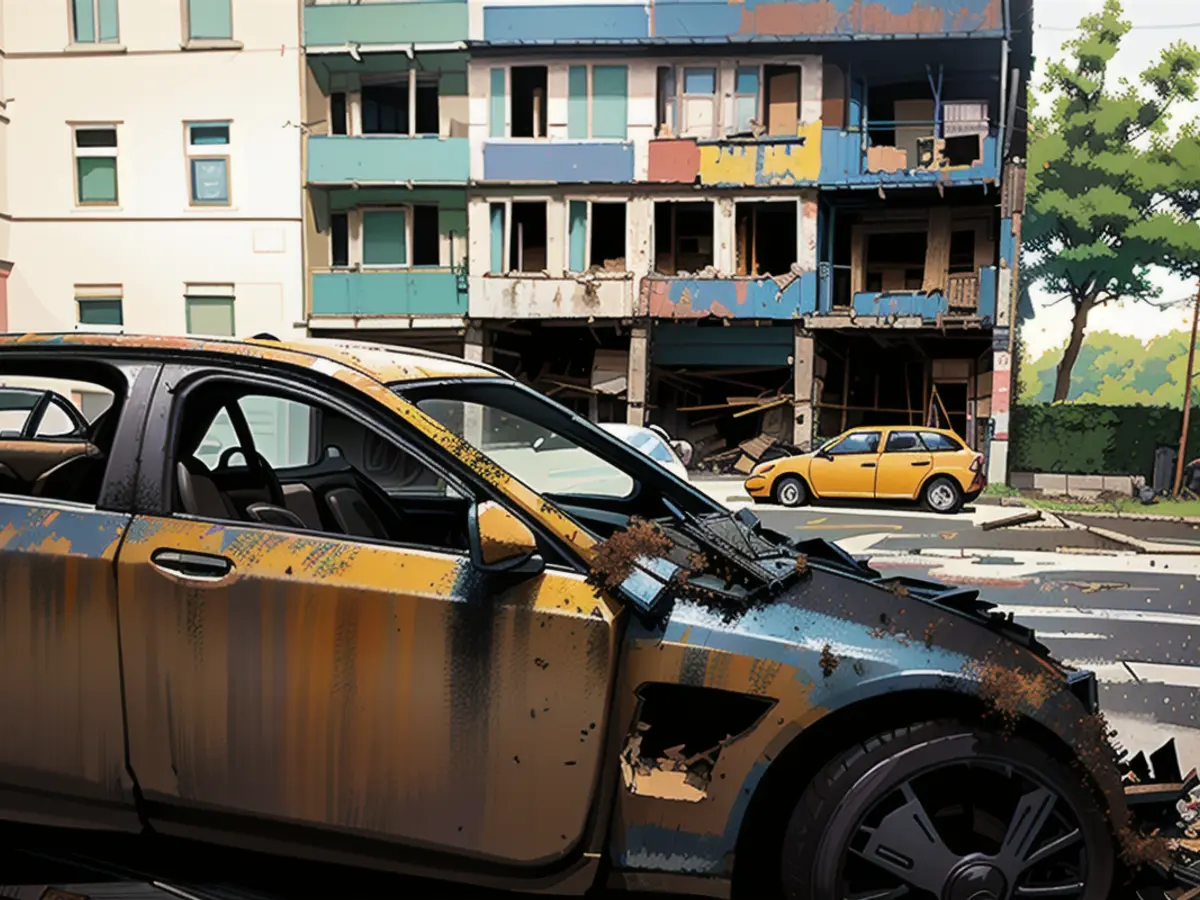Georgia experiences demonstrations amid government's push for a 'foreign agent' law resembling Russia's.
Thousands of Georgians have been protesting nightly in front of their country's parliament, enduring tear gas and water cannons shot by increasingly violent police, in opposition to a bill they believe will jeopardize their chances of joining the European Union and pull them further into Russia's orbit.
Jafaridze, one of these protesters, considers this his nightly routine and emphasizes the importance of protecting their freedom at this moment, lest they wake up as part of Russia's sphere of influence.
The ruling Georgian Dream party wants to pass a "foreign agent" law, likened by critics to a measure introduced by Russian President Vladimir Putin to dismantle opposition. The bill has gone through its second of three votes and requires organizations within the former Soviet nation to register as "foreign agents" if they receive more than 20% of their funding from outside the country or face hefty fines.
Jafaridze, who also owns a travel agency and relies heavily on foreign sources for his income, would be labeled as a foreign agent under the extensive law. However, opponents argue the true intention of the legislation is not to target entrepreneurs like him, but to target independent media and civil society institutions prior to the October elections, at a time when Georgian Dream is fighting to maintain its power amid declining popularity.
Georgia's government had attempted to pass the same law last year, but was forced to retract it following a week of intense demonstrations featuring citizens waving EU flags. As a way to reward these citizens and draw Georgia closer to the bloc, the EU granted it candidate status in December.
But the government has presented the same law again, appearing resolute about passing it regardless of the escalating protests.
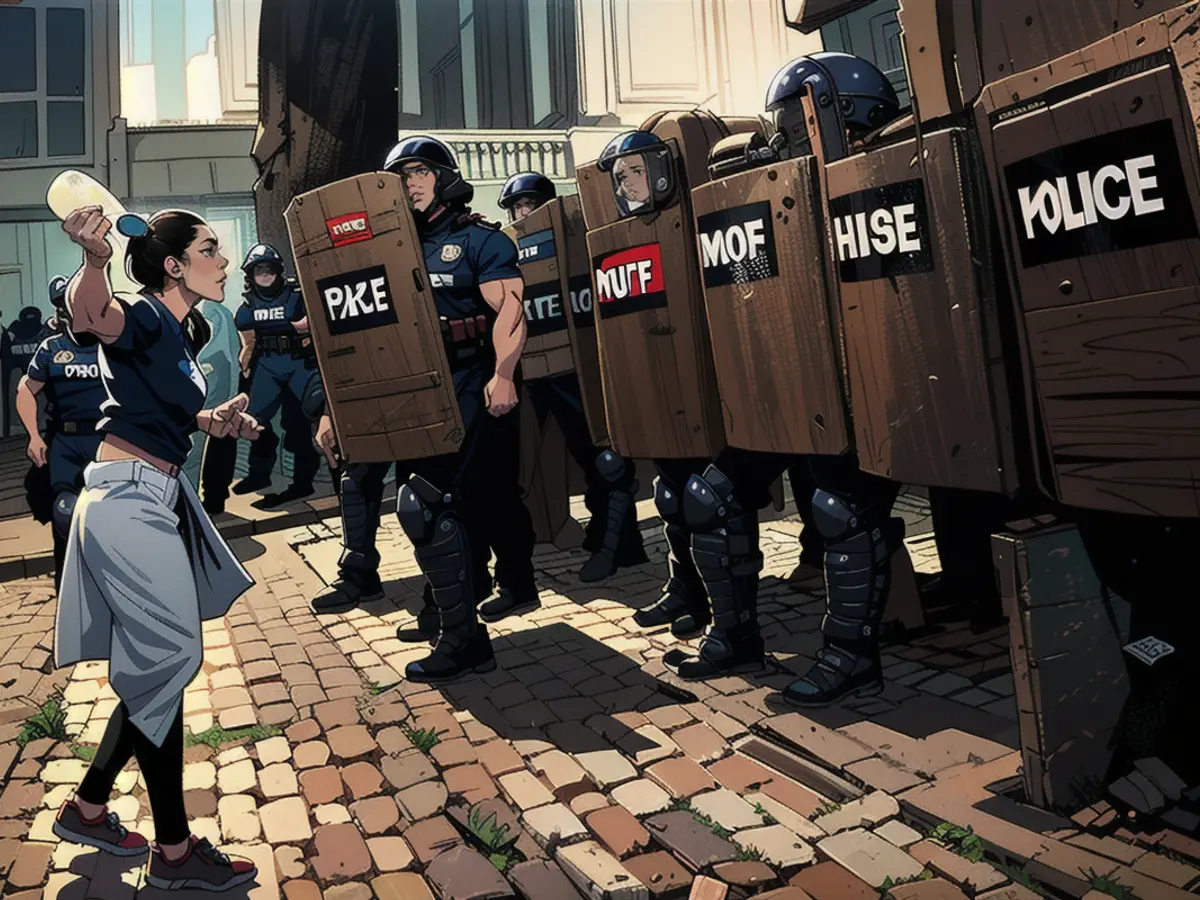
The police response has become more brutal as the protests intensify. Levan Khabeishvili, chairman of the opposition United National Movement party, posted a photo of his swollen and bruised face on social media after he claimed to be brutally beaten by police on Tuesday night. Khabeishvili explained he was conducting an interview outside parliament when he saw a young man being arrested by police and tried to intervene.
"At that moment they grabbed me, dragged me in and assaulted me," he recounted, noting the ordeal lasted around 15 minutes. "They were telling me that I speak too much, and they'd make sure I would not be able to any longer." Khabeishvili appeared at parliament the following day with his face wrapped in bandages.
Eto Buziashvili, a former adviser to Georgia's National Security Council, said the police on Tuesday night became exceptionally violent. She recounted seeing "many law enforcement officers who were not wearing identification marks. They were beating people, but we didn't know they were law enforcement."
Multiple protesters told CNN that the tear gas used was stronger than before, making it more challenging to breathe and causing protesters to momentarily disperse and regroup. Numerous people took refuge at the April 9 Park, named after a night in 1989 when the Soviet Army attempted to suppress a pro-independence protest, resulting in 21 deaths and hundreds of injuries. Georgia declared independence from the Soviet Union two years later.
"This is not Belarus," many Georgians express their hostility towards Russia, which invaded Georgia in 2008 and now controls around 20% of its internationally recognized territory, comparable to its presence in Ukraine. Although Russia has recently exerted pressure on Georgia, Georgian Dream has long been suspected of having pro-Russian leanings.
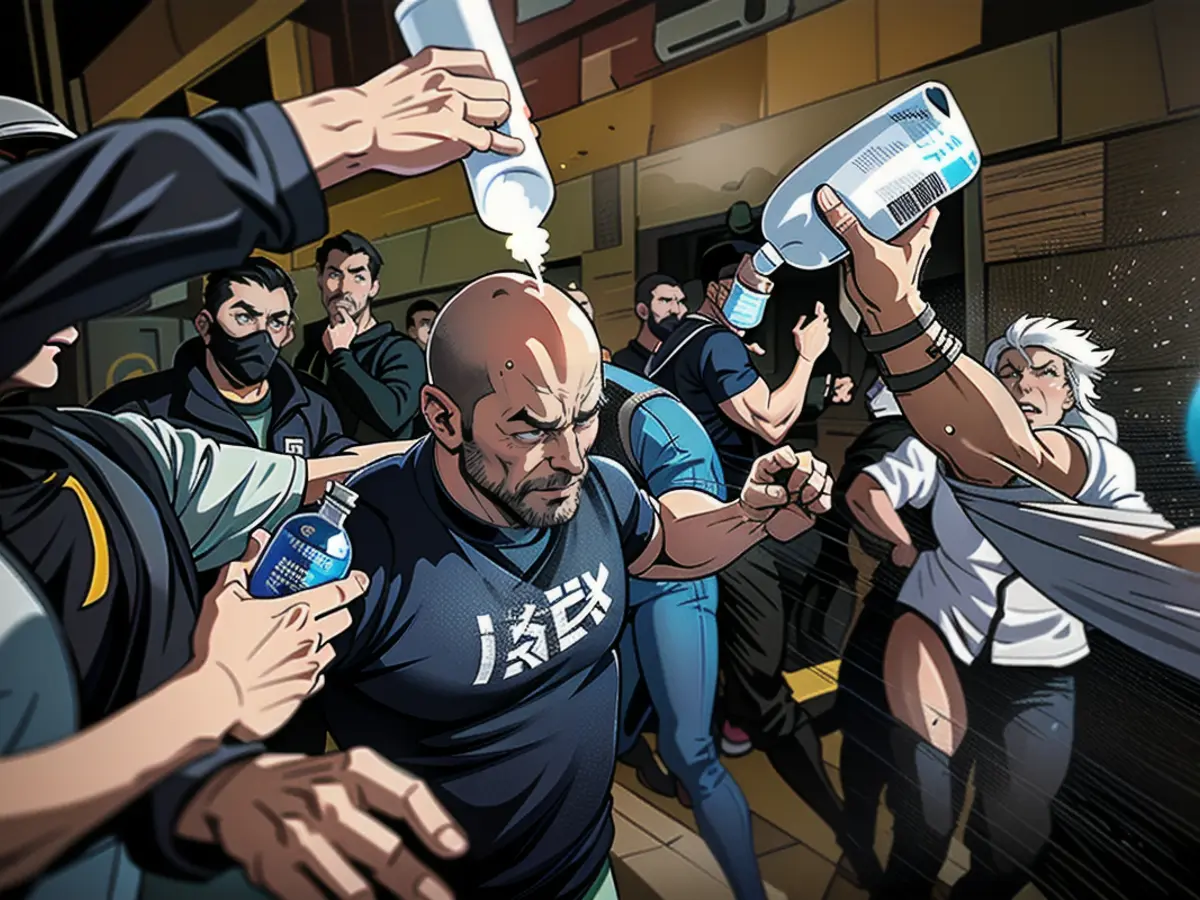
The party's billionaire founder, Bidzina Ivanishvili, built his fortune in the Soviet Union. "Not many people believe that a person who makes billions in Russia would be let out without any commitments," shared Buziashvili. Many Georgians describe Ivanishvili as a "puppet master," believing that elected officials mostly dance to his tune.
Ivanishvili, who was previously an active politician but has since retreated into the shadows, made a rare appearance on Monday night, addressing a group of counter-protesters after thousands were transported to Tbilisi from Georgia's rural areas, where Georgian Dream enjoys more support.
His speech exuded deep paranoia, broad-reaching conspiracy theories, and an autocratic bent. Ivanishvili claimed Georgia was under the control of a "pseudo-elite nurtured" by a foreign country. He asserted the world was guided by a "Global War Party," which he suggested was responsible for Russia's invasion of Georgia in 2008. And he pledged to pursue his political opponents once the elections are over.
"The Georgian government is evidently aligning with the Putinist, anti-liberal groups of the world," asserted Sabanadze, the former EU ambassador. "It's transforming into a tool in Russia's hands. I cannot guess. I have no clue as to whether they're working on Russia's commands, but they're definitely fulfilling their objectives."
Protests grew stronger in Tbilisi while Georgian Prime Minister Irakli Kobakhidze spoke at the Conservative Political Action Conference (CPAC) in Hungary. In his address, Kobakhidze condemned the "so-called liberals" demonstrating outside parliament, claiming they were targeting "homeland, language, and faith." Sabanadze highlighted Hungarian Prime Minister Viktor Orban's appeal to governments wishing to maintain power.
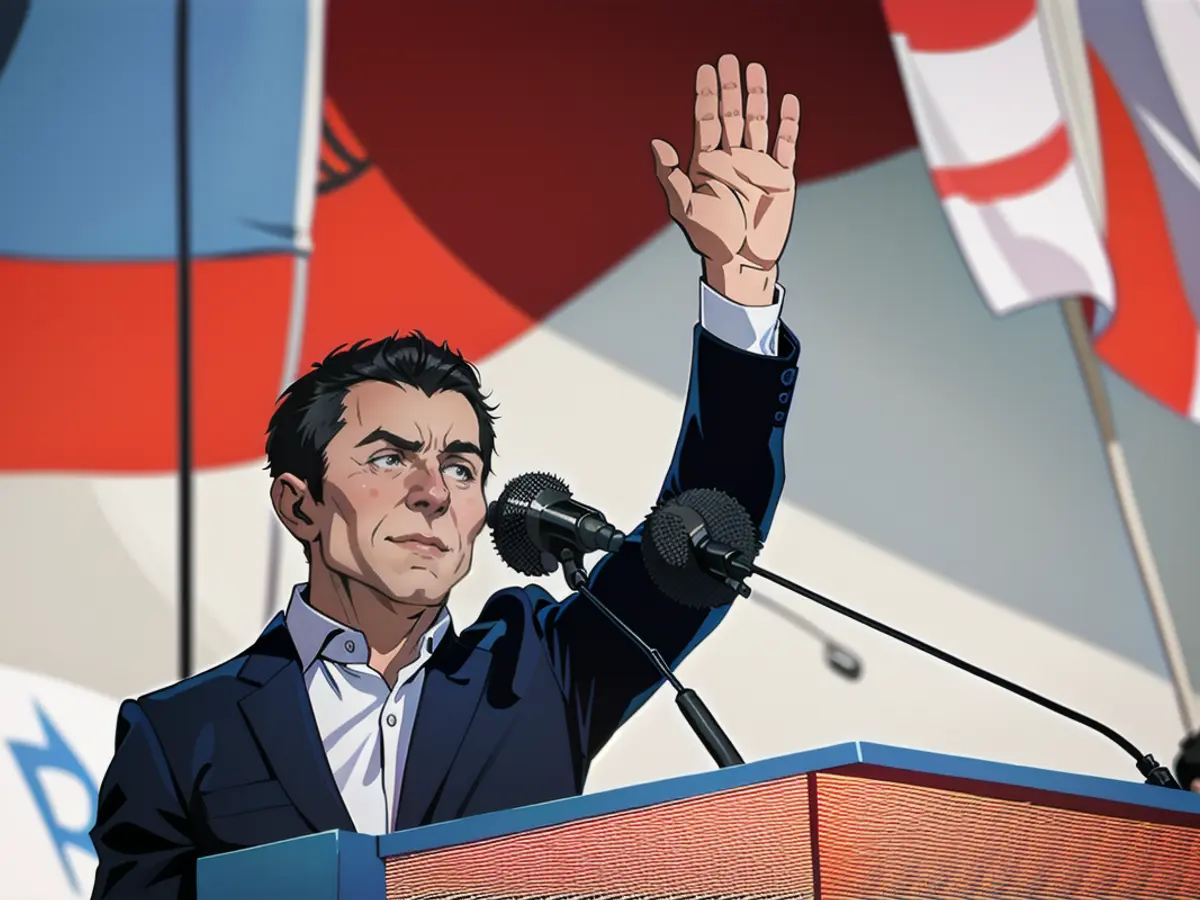
The US has rebuked Georgia's more recent turn. State Department spokesperson Matthew Miller expressed concern, saying the foreign agent law and Georgian Dream's anti-Western discourse might plunge Georgia into danger.
Kobakhidze countered US criticism on Friday, accusing Washington of orchestrating a revolution in Georgia through NGOs funded externally.
Critics question why Georgian Dream revived the foreign agent bill at this juncture, almost a year since it was initially rejected. Ivanishvili mad clear his intentions, stating that by introducing the bill at the present moment, he hoped the demonstrators' energy would be taxed prematurely and their strength would be depleted before October.
In a fascinating comparison, Ivanishvili asserted he was dissimilar to Viktor Yanukovych, the former Ukrainian president overthrown by the Maidan protests in 2014, when thousands of Ukrainians demanded a European future – an analogy to today's protests in Tbilisi.
"He believes this situation is distinct, that he has more control, and that he shan't allow a Maidan here in Georgia," mentioned Sabanadze. "However, he might be underestimating the public fury."

With no signs of the demonstrations abating, spectators speculate if they could evolve into something resembling a revolution. "If this government doesn't rescind this law now, before having a chance, then it will prove difficult for them to reach the elections. It's a vicious cycle right now," claimed Sabanadze.
Jafaridze, the vintner, has never experienced such unity. "I don't believe these people can be subdued. This isn't Belarus. This isn't Russia."
Read also:
- This will change in December
- Dikes withstand water masses so far - Scholz holds out the prospect of help
- Fireworks and parties ring in 2024 - turn of the year overshadowed by conflicts
- Attacks on ships in the Red Sea: shipping companies avoid important trade route
Source: edition.cnn.com


